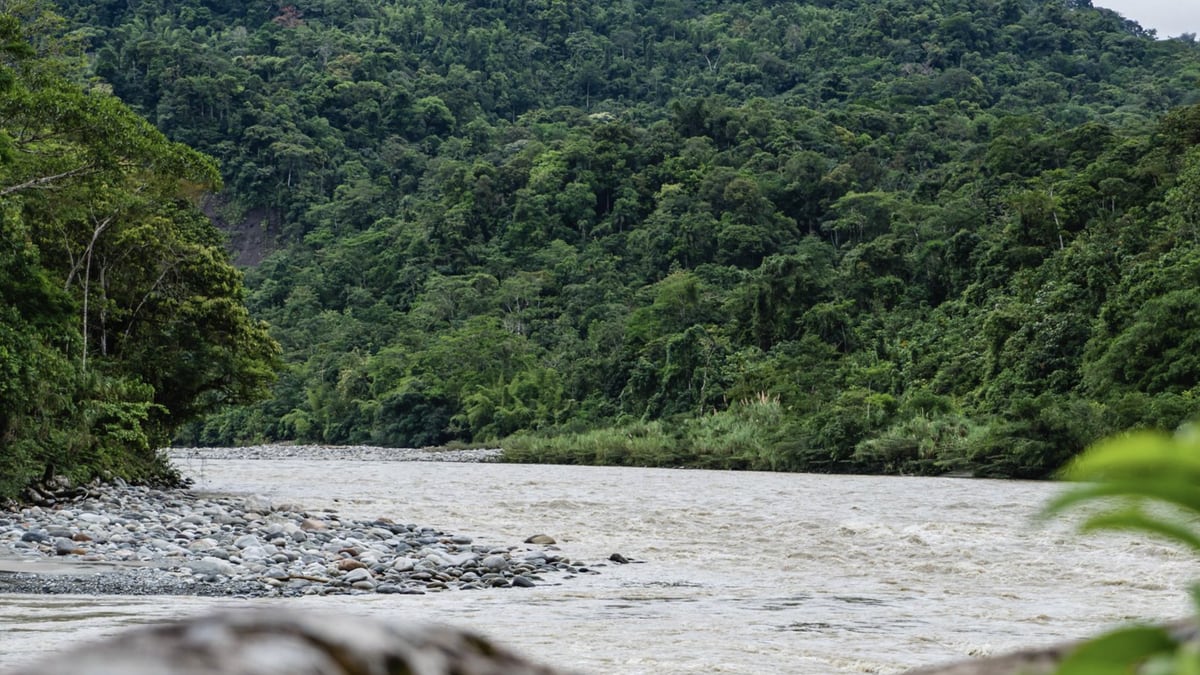EL PAÍS offers the América Futura section openly for its daily and global information contribution on sustainable development.
If you want to support our journalism, subscribe
here
.
Water conservation must be a priority on the world agenda.
The contamination of this resource, droughts, floods, its growing demand—which doubles every 20 years—due to population growth, and the water consequences of climate change, are just some of the problems that challenge us as humanity.
It is projected that by 2025 at least two-thirds of the world's population will live in water-stressed areas.
Therefore, we need to create comprehensive solutions, with an environmental, social and economic focus, that guarantee well-being and water security, the availability of water not only in terms of quantity but also quality.
Solutions that start with the conservation and restoration of watersheds, home to the sources of fresh water that feed main streams such as rivers and wetlands.
With this purpose, more than 20 years ago, the first Water Fund was created in Quito, Ecuador.
The city's municipal drinking water company, together with The Nature Conservancy (TNC) and other local partners, realized the degree of deterioration of the high Andean ecosystems, which provide the water consumed in Quito, and created this initiative to promote water management. comprehensive management of water resources, promoting the conservation of natural ecosystems.
The Water Funds, from that moment on, have been established as organizations that bring together different public, private and civil society actors in order to contribute to water security: the availability of water not only in terms of quantity but also quality.
The funds are responsible for implementing conservation actions in strategic basins for water supply and thus guaranteeing the means for life, well-being and socioeconomic development of millions of people.
The actions implemented within the framework of these initiatives are based on scientific knowledge and monitoring systems, to provide the best Nature-Based Solutions according to each context.
The Water Funds model, conceived and developed in Latin America, has managed to expand throughout the world and impact the strategies of the global north.
Its adaptable and integrated solutions have allowed effective knowledge transfer, and have positioned the region as a global leader within the framework of Nature-Based Solutions to guarantee water security.
This model was replicated throughout Latin America, a region where we find 32% of the world's water resources.
Today we register a total of 26 Water Funds in 11 Latin American countries.
The initiative has continued to be replicated throughout the world.
It also reached the United States, Africa, Asia;
and, this year 2024 it also arrived in Europe.
In February, the county of Norfolk, in the United Kingdom, established the Strategic Water Program for Norfolk, an alliance between the Anglian Water company, the Water Resources East organization and The Nature Conservancy to address the different water-related problems in its region. .
If we look closely, in this region of Eastern England, the different rivers of water security problems converge, as if it were a great sea.
It has high risks of flooding, which threatens 32,000 properties;
its water quality is compromised due to inappropriate soil management;
and access to the resource is in question: experts calculate that by 2050 the demand for water will exceed the supply.
To address the problem, on February 27, a business plan of 30 million pounds (38 million dollars) was launched that stipulates different Nature-Based Solutions, which contemplates that for every pound invested in these solutions there is a return up to of £6.7 in profits.
That is, boost the investments made by six times.
This business plan, which will be implemented according to the Water Funds model, includes conservation actions such as the implementation of permeable ponds, protection strips and soil management;
as well as actions to monitor and evaluate the region's water resources.
To confront the water problem, we must understand its dimensions: there is competition for access to water by different economic sectors such as agriculture – responsible for 70% of total freshwater withdrawals in the world – and the energetic;
there is an inevitable growth of the world population;
and, no less important, the dynamics of ecosystems have been transformed by climate change.
This is why solutions to guarantee the planet's water security require strategies that enable new opportunities for social and economic development, that generate systematizable and transferable knowledge, and are replicable.
Now, more than ever, we need to generate and encourage the exchange of experiences and good practices, promoting collaborative work, which allows us to find solutions that meet the challenges we are facing.
The transfer of knowledge from Latin America to Europe, and vice versa, in a variety of areas such as water security, agriculture and livestock, climate change, public health and many others, represents an opportunity to move towards sustainable development and the well-being of communities. Worldwide.
Water is the basis of life and intrinsic connections across different watersheds are essential.
Therefore, we cannot forget that water is our best investment.
Paula Caballero
is The Nature Conservancy's regional executive director for Latin America and
Marianne Kleiberg
is that organization's regional executive director for Europe.

